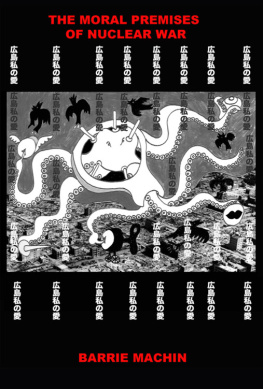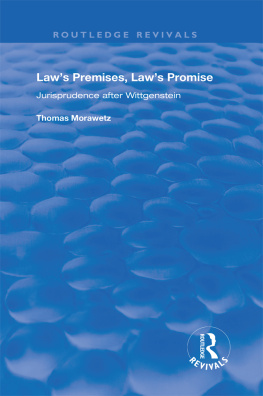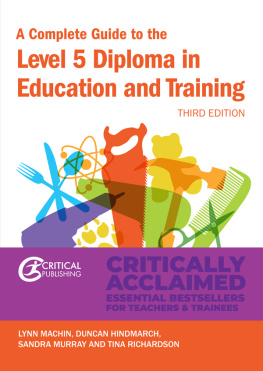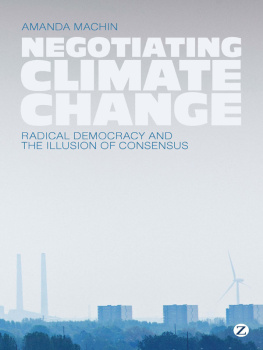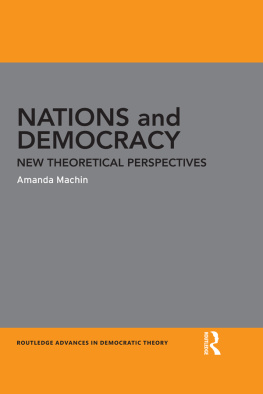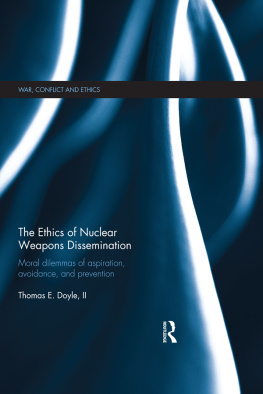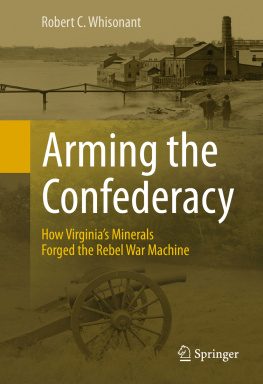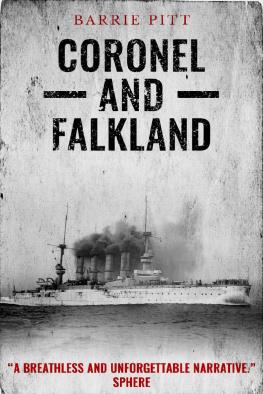Barrie Machin [Machin - The Moral Premises of Nuclear War
Here you can read online Barrie Machin [Machin - The Moral Premises of Nuclear War full text of the book (entire story) in english for free. Download pdf and epub, get meaning, cover and reviews about this ebook. year: 2011, publisher: Primedia eLaunch, genre: Politics. Description of the work, (preface) as well as reviews are available. Best literature library LitArk.com created for fans of good reading and offers a wide selection of genres:
Romance novel
Science fiction
Adventure
Detective
Science
History
Home and family
Prose
Art
Politics
Computer
Non-fiction
Religion
Business
Children
Humor
Choose a favorite category and find really read worthwhile books. Enjoy immersion in the world of imagination, feel the emotions of the characters or learn something new for yourself, make an fascinating discovery.
- Book:The Moral Premises of Nuclear War
- Author:
- Publisher:Primedia eLaunch
- Genre:
- Year:2011
- Rating:4 / 5
- Favourites:Add to favourites
- Your mark:
- 80
- 1
- 2
- 3
- 4
- 5
The Moral Premises of Nuclear War: summary, description and annotation
We offer to read an annotation, description, summary or preface (depends on what the author of the book "The Moral Premises of Nuclear War" wrote himself). If you haven't found the necessary information about the book — write in the comments, we will try to find it.
Barrie Machin [Machin: author's other books
Who wrote The Moral Premises of Nuclear War? Find out the surname, the name of the author of the book and a list of all author's works by series.
The Moral Premises of Nuclear War — read online for free the complete book (whole text) full work
Below is the text of the book, divided by pages. System saving the place of the last page read, allows you to conveniently read the book "The Moral Premises of Nuclear War" online for free, without having to search again every time where you left off. Put a bookmark, and you can go to the page where you finished reading at any time.
Font size:
Interval:
Bookmark:
THE MORAL PREMISES OF NUCLEAR WAR
ISBN: 978-0-9803348-3-8
eISBN: 978-1-61979-285-2
Barrie Machin
Fiction
Antarctica: A Travel Survival Guide English-Japanese
Beyond The Cringe: Sex, Drugs, Fishing, Religion. DYI, The Assassination Of American Presidents And Other Fun Things
Non- Fiction
Why Try Educational aspirations in Blackbird Leys?
Warriors and Maidens: Cultural Codes in a Cretan Mountain Village
Every Day is 9/11
Films
1984 Sitari (10 mins) Threshing in Western Crete.
1984 Eagle Nests of Crete (15 mins) Herding in Western Crete.
1985 Passing Shadows (30 mins) Death ritual in Western Crete.
1985 Burnt Harvest (9 mins)
1988 Warriors and Maidens (54 mins).
1988 Warriors and Maidens a discussion (48 mins).
1984 Iramudun (45 mins) The exorcism of the forenoon blood demon.
Winner of the Blue Ribbon Trophy first prize in Cultural Studies American Film Festival 1984.
Prize for a film of outstanding scientific and artistic excellence, Second International Visual Anthropology Film Festival, Parnu Estonia October 11-18, 1988.
1986 Mahasona (54 mins) A complex ritual involving many gifts to the gods and the whole demon army in a series of masked dances and comic performances.
1986 Mahasona Baliya (10 mins).
1987 Cinnamon Pickers (8 mins).
1987 Suniyama (60 mins) The anti-sorcery ritual.
1987 Coir (4 mins)
1989 Ladakh Funeral (31 mins).
Anger: Hiroshima Mon Amour solar and digital Gicle
The octopus emerges from the womb. The head of the Octopus is crossed with a WWII sea mine: anger: war. The Octopuss sex organs penetrate female forms, which fly or are operated by clockwork mechanisms. These are comments on the commercialization, colonisation and war on the body represented by late capitalism (see Zaretsky E. 1976 Capitalism the Family and Personal Life New York: Harper &Row). This is also a cryptic parody of a famous Japanese painting.
One of the octopuss phalluses is a dagger a comment on some observations of perverse masculinity especially rape in warfare.
All around the vixen/crow/St Michelle/petit mort flies to heaven.
The image is embedded in the style of propaganda leaflets dropped from airplanes. The Octopus hovers over a devastated Hiroshima.
Available as an edition of 100 $100 each from or on the website www.barriemachin.com
Barrie Machin 1986, 2007, 2011
Although written before Glasnost this text is still highly relevant to the contemporary world.
First published
1986 The Moral Premises of Nuclear War. In Maas, J. P., and Steward, R. A. (Eds.). Toward A World of Peace: People Create Alternatives. Proceedings of the First International Conference on Conflict Resolution and Peace Studies. University of the South Pacific, Suva, Fiji.
1987 The Moral Premises of Nuclear War. Asian Economic and Social Review Vol. 1 February-May Nos 1-2. Lead article. Concerned with the anthropology of war and peace.
All rights reserved.
No part of this book may be reproduced or transmitted in any form or by any means without written permission of the author.
Shimmering Pioneer Books
barriemachin@gmail.com
THE MORAL PREMISES OF NUCLEAR WAR
We are often trapped in the preconceptions of a system of thought. The arms race is a moral issue with historical, social and psychological roots. In this paper I examine the thinking behind it: the myth of scientific expertise; the myth of the eternal present; the conceptual status of' the 'other'; the consequences of defensiveness and its acceptable levels; the premise of mass genocide; the rights of children; the damage inflicted by undropped bombs; the harm inflicted by dual codes, and legitimate and illegitimate 'terrorism.
In discussions of nuclear strategy and defense we are in danger of being drawn into an insane technical debate about types of weaponry and the levels of casualties that might ensue from a nuclear exchange.
A great deal depends of course upon the prior assumptions about the amount of megatonnage unleashed in such an exchange. There is a welter of 'rational' scientific argument about these assumptions. One finds apparently sane people talking poker-faced of acceptable levels of damage, when they are referring to hundreds of millions of casualties.
A recent study by SIPRI, an obscenario for a nuclear exchange in the northern hemisphere (11,3 10 USSR missiles of 4,140 megatons against 12.840 US missiles of 3,510 megatons) estimates that within a day there would be 750 million dead and 340 million wounded. That is the scale of damage, before the long-term effects of radiation, ecological damage, and pestilence have even been considered. Such a possibility makes the Jewish Holocaust took like a festival celebrating the brotherhood of man. Like many at the time of the Second World War, we know that preparation for such a final solution are underway and many are willing partners in this global Treblinka (Stockholm International Peace Research Institute, 1984).
The mere fact that we can even contemplate such horror is an extraordinary reflection on the emotional well-being of human kind. As MacLeish says knowledge without feeling is not knowledge, and can only lead to public irresponsibility and indifference, conceivably to ruin. When the fact is dissociated from the feel of the fact ... civilization is in danger' (in Grinspoon 1965, 126). Frequently, the fundamental moral issues of nuclear deterrence are concealed in arguments about levels of nuclear development, and in the extraordinary complexity of the strategic glossary. Grinspoon terms this propensity to seek refuge in expertise and facts 'used by those working on peace research as well as by those making preparations for war' - intellectualism (Grinspoon, 1965, 123). Another closely associated psychological defense mechanism, connected with the cult of the expert and the myth of detached scientism, is 'isolation' the means by which emotion is separated from fact (Grinspoon, 1965: 126).
It is a grotesque error to get lost in the more complex debates about levels of armaments and the banal technical glossary of psiloads and megadeath and all the tactical euphemisms which serve to disguise the awesome prospects of the end of life on this planet. Obedience to authority (Milgram, 1974) and surrender to expertise is at the heart of this anticipated tragedy. We must reject the role of the expert and embrace our emotions when it comes to rejecting nuclear weapons as a means of defence. There are no experts when it comes to nuclear disarmament (Ford, 1982). We should be extremely skeptical about scientific 'rationality' and knowledge.
Consider a recent issue. Scientists had to go to Mars to discover that where there was fire there was smoke (Ehrlich et al., 1984; BMA, 1983). Since the- discovery that a likely outcome of nuclear war will be a cloak of winter covering our planet, there has been some discussion of the likely drop in temperature should such a war happen and whether or not there would be any survivors. Scientists have not considered a vast number of other consequences of nuclear war. To the damage largely caused by smoke, we must add the hitherto ill-considered effects in addition to burns, fall-out, fire and smoke. Nuclear explosions will be augmented by silo explosions of target weapons; direct hits against nuclear power plants alone will cause radioactive contamination of vast areas of the planet. To this we must add the damage caused by hits on nuclear and industrial waste dumps, on toxic industries like Bhopal. We must also include the effects of releasing biological and nerve gas stockpiles and hits on genetic engineering laboratories. The apocalyptic vision of nuclear winter is magnified to unimaginable proportions when each of these dangers will be magnified a thousand fold by the synergistic presence of each of the others producing a complete and irreversible breakdown of the fabric of life on this planet.
Next pageFont size:
Interval:
Bookmark:
Similar books «The Moral Premises of Nuclear War»
Look at similar books to The Moral Premises of Nuclear War. We have selected literature similar in name and meaning in the hope of providing readers with more options to find new, interesting, not yet read works.
Discussion, reviews of the book The Moral Premises of Nuclear War and just readers' own opinions. Leave your comments, write what you think about the work, its meaning or the main characters. Specify what exactly you liked and what you didn't like, and why you think so.

